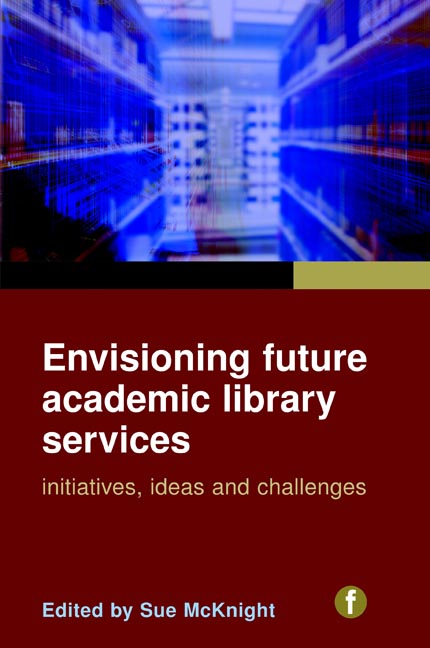Book contents
- Frontmatter
- Contents
- Foreword
- Contributors
- Introduction: We create the future!
- 1 Waiting for the barbarians: seeking solutions or awaiting answers?
- 2 The delete generation: how citizen-created content is transforming libraries
- 3 Libraries as places: challenges for the future
- 4 Web 2.0: redefining and extending the service commitment of the academic library
- 5 Second Life and libraries: boom or bust?
- 6 Some new business ideas in the HSS publishing space: what may librarians expect?
- 7 Loosely joined: the discovery and consumption of scholarly content in the digital era
- 8 Knowledge management, universities and libraries
- 9 Libraries and the management of research data
- 10 The leadership of the future
- 11 Adding value to learning and teaching
- 12 In search of the road ahead: the future of academic libraries in China
- Index
11 - Adding value to learning and teaching
Published online by Cambridge University Press: 08 June 2018
- Frontmatter
- Contents
- Foreword
- Contributors
- Introduction: We create the future!
- 1 Waiting for the barbarians: seeking solutions or awaiting answers?
- 2 The delete generation: how citizen-created content is transforming libraries
- 3 Libraries as places: challenges for the future
- 4 Web 2.0: redefining and extending the service commitment of the academic library
- 5 Second Life and libraries: boom or bust?
- 6 Some new business ideas in the HSS publishing space: what may librarians expect?
- 7 Loosely joined: the discovery and consumption of scholarly content in the digital era
- 8 Knowledge management, universities and libraries
- 9 Libraries and the management of research data
- 10 The leadership of the future
- 11 Adding value to learning and teaching
- 12 In search of the road ahead: the future of academic libraries in China
- Index
Summary
Introduction
The reputation of the academic library has long been associated with research and scholarly publishing, and its role in supporting under - graduate and postgraduate teaching programmes has almost been assumed. This chapter highlights the significant contributions made by academic libraries in support of learning and teaching and explores issues associated with retaining and enhancing these roles in the future. The intention of this chapter is to inspire creative thinking about what future academic library services to support learning and teaching could be like.
Today's academic libraries exist within a changing landscape of traditional on-campus and virtual university activity. The entire university is undergoing significant change. Universities are rapidly introducing blended mode (online activities and resources complementing face-toface lectures) and wholly online learning in addition to the traditional face-to-face teaching. Library services have to adapt to these new modes of delivery. Libraries also have to develop new services to respond to the changing student cohorts that result from these new learning and teaching opportunities.
Other chapters in this book discuss the challenges of meeting the new digital research agenda; issues to be faced when considering the physical space of the academic library of the future; the impact of Web 2.0 and Library 2.0. Although these topics are directly related to supporting scholarship and learning and teaching, they have been excluded here.
Academic libraries today
The Society of College, National and University Libraries (SCONUL) in the United Kingdom established a Learning and Teaching Task and Finish Group in 2008 to scope the principal areas of activity where university libraries contribute to, influence and impact on learning and teaching activities. The group consisted of representatives from a number of SCONUL groups and from the Higher Education Academy. The SCONUL Executive felt that although there was clear evidence of the value adding of academic libraries in support of research, there was less qualitative and quantitative evidence of their role in supporting learning and teaching.
The Task and Finish Group presented its findings at SCONUL's Summer Conference, convened in Bournemouth from 10 to 12 June 2009 (McKnight, 2009). It was identified that academic libraries add value for a large number of stakeholders in relation to learning and teaching: academic staff, students, the higher education institution, parents, employers, professional associations, library and information science educators and government bodies.
Information
- Type
- Chapter
- Information
- Envisioning Future Academic Library ServicesInitiatives, ideas and challenges, pp. 197 - 216Publisher: FacetPrint publication year: 2010
